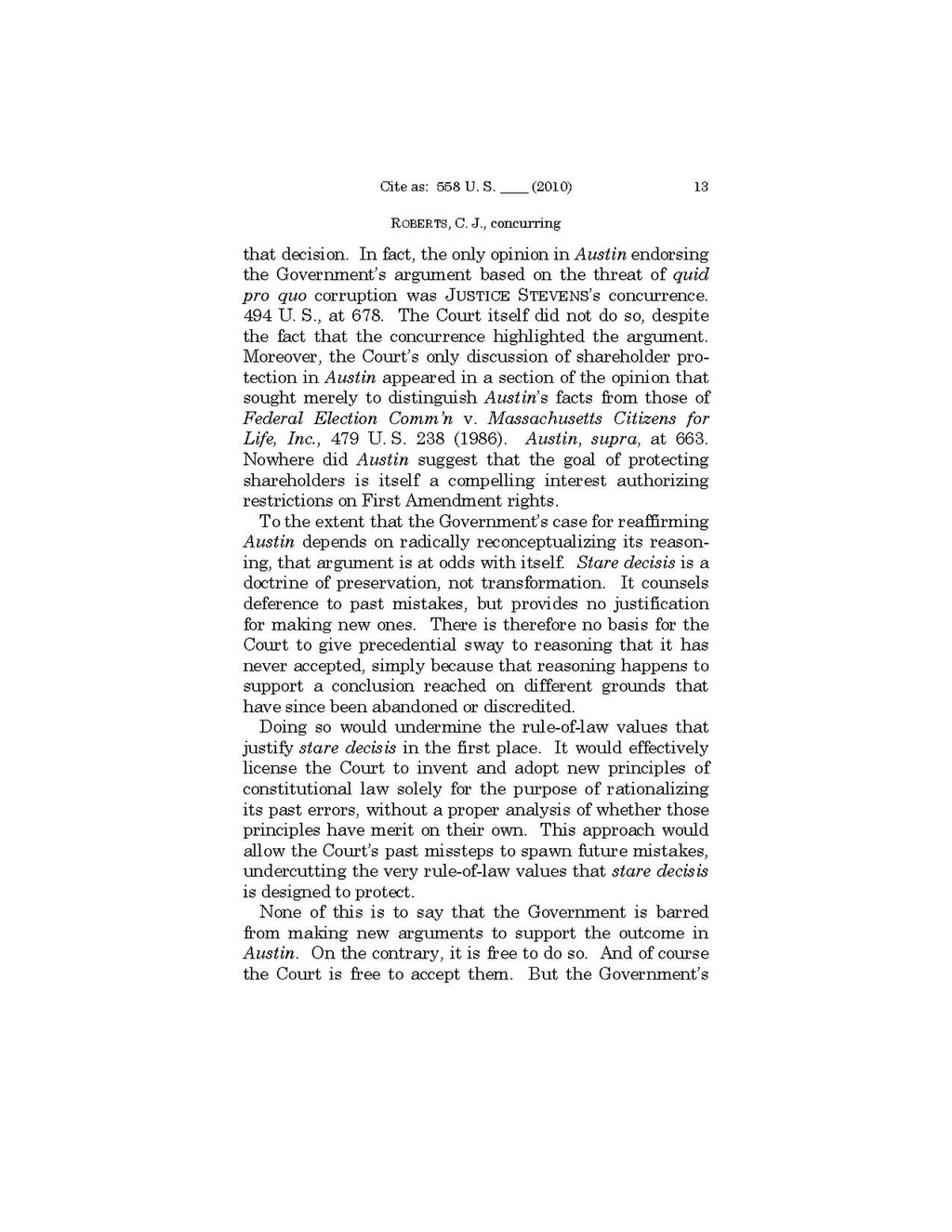Roberts, C. J., concurring
that decision. In fact, the only opinion in Austin endorsing the Government’s argument based on the threat of quid pro quo corruption was Justice Steven's concurrence. 494 U. S., at 678. The Court itself did not do so, despite the fact that the concurrence highlighted the argument. Moreover, the Court’s only discussion of shareholder protection in Austin appeared in a section of the opinion that sought merely to distinguish Austin’s facts from those of Federal Election Comm’n v. Massachusetts Citizens for Life, Inc., 479 U. S. 238 (1986). Austin, supra, at 663. Nowhere did Austin suggest that the goal of protecting shareholders is itself a compelling interest authorizing restrictions on First Amendment rights.
To the extent that the Government’s case for reaffirming Austin depends on radically reconceptualizing its reasoning, that argument is at odds with itself. Stare decisis is a doctrine of preservation, not transformation. It counsels deference to past mistakes, but provides no justification for making new ones. There is therefore no basis for the Court to give precedential sway to reasoning that it has never accepted, simply because that reasoning happens to support a conclusion reached on different grounds that have since been abandoned or discredited.
Doing so would undermine the rule-of-law values that justify stare decisis in the first place. It would effectively license the Court to invent and adopt new principles of constitutional law solely for the purpose of rationalizing its past errors, without a proper analysis of whether those principles have merit on their own. This approach would allow the Court’s past missteps to spawn future mistakes, undercutting the very rule-of-law values that stare decisis is designed to protect.
None of this is to say that the Government is barred from making new arguments to support the outcome in Austin. On the contrary, it is free to do so. And of course the Court is free to accept them. But the Government’s
